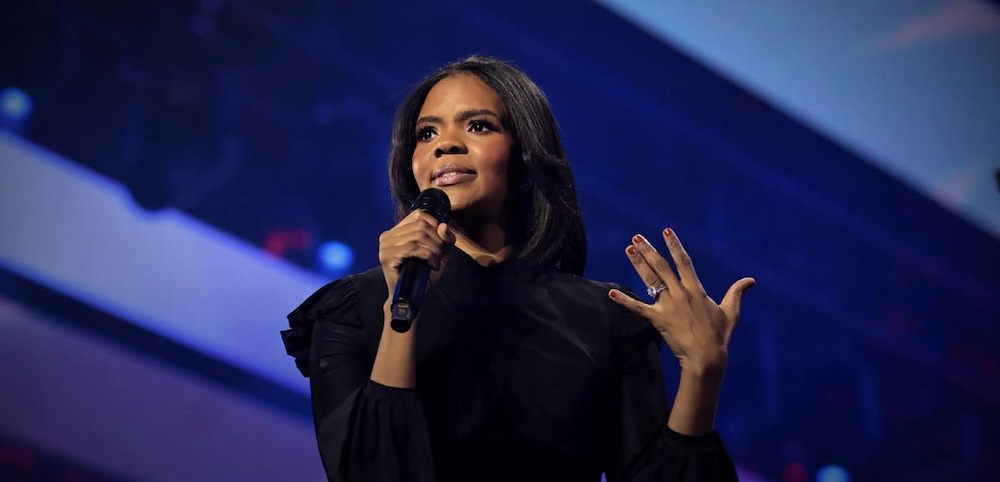
Highs and lows from the campaign trail
It’s been a long road to the 2012 US presidential election. From the often outrageous Republican primary season last year through to the final frenetic weeks of the campaign, there have been surprises and gaffes galore.
Star Observer has compiled some of the highlights – and lowlights – from the race for the White House, and the role LGBT politics has played in the lead-up to the final vote.
Obama supports marriage
 A watershed moment not just for the election campaign but also for LGBT history was President Barack Obama’s announcement in May that he now supported equal marriage rights for same-sex couples. He became the first sitting president to announce his support for gay marriage in an interview with Good Morning America, saying he’d undergone an “evolution” on the subject.
A watershed moment not just for the election campaign but also for LGBT history was President Barack Obama’s announcement in May that he now supported equal marriage rights for same-sex couples. He became the first sitting president to announce his support for gay marriage in an interview with Good Morning America, saying he’d undergone an “evolution” on the subject.
“I’ve always been adamant that gay and lesbian Americans should be treated fairly and equally,” he said.
“At a certain point I’ve just concluded that for me personally it is important for me to go ahead and affirm that I think same-sex couples should be able to get married.”
The White House had been forced into days of embarrassing spin and stalling around the issue after US vice president Joe Biden said he was “absolutely comfortable” with same-sex couples being allowed the same civil rights as opposite-sex couples in an interview with NBC’s Meet The Press.
Many thought the potentially divisive issue would play heavily in this year’s campaign, but despite four state ballot initiatives on same-sex marriage, the president’s announcement was rarely mentioned as a negative by the Republican camp.
Log Cabin supports Mitt Romney
 A US organisation for gay supporters of the conservative Republican Party surprisingly endorsed former Massachusetts Governor Mitt Romney for president in October.
A US organisation for gay supporters of the conservative Republican Party surprisingly endorsed former Massachusetts Governor Mitt Romney for president in October.
The Log Cabin Republicans did not endorse George W. Bush for president during the 2004 election campaign because of his support for a constitutional amendment banning same-sex marriage, but chose to endorse John McCain in 2008 due to his opposition to the proposed amendment.
Romney supported an amendment to define marriage as an institution between a man and a woman.
He also made a $10,000 donation to the National Organization for Marriage (NOM) during its fight to repeal California’s marriage equality law in the Proposition 8 ballot measure.
“The decision to endorse is the right one for our members, our community, and for the nation as a whole,” Log Cabin Republicans executive director R. Clarke Cooper said in an emailed announcement.
“Despite our disagreement with Governor Romney on the issue of marriage, on balance it is clear that in today’s economic climate, concern for the future of our country must be the highest priority.
“We are Republicans, and we agree with Governor Romney’s vision for America in which success is a virtue, equal opportunity is ensured, and leaders recognize [sic] that it is the American people, not government, that build our nation and fuel its prosperity.”
Cooper said that on issues of particular concern to the LGBT community, the organisation believed Romney would move the ball forward compared to past Republican presidents.
“No matter who is in the White House, it is crucial our community always has a credible voice speaking out on behalf of LGBT Americans,” he said.
“Log Cabin Republicans will be that voice to President Mitt Romney.”
The Bachmanns
 Minnesota congresswoman Michele Bachmann rose to prominence during her campaign to be the Republican nominee for president. She left the primary race early on, but her extreme religious and anti-gay views made sure she – and her husband – would be remembered long after she departed the national stage.
Minnesota congresswoman Michele Bachmann rose to prominence during her campaign to be the Republican nominee for president. She left the primary race early on, but her extreme religious and anti-gay views made sure she – and her husband – would be remembered long after she departed the national stage.
One of her most controversial comments from the Bachmann camp was her definition of homosexuality as ‘part of Satan’.
The audio of her speech to a national education conference in 2004 reemerged during the congresswoman’s campaign.
“Any of you who have members of your family that are in the lifestyle – we have a member of our family that is – this is not funny. It’s a very sad life. It’s part of Satan, I think, to say this is gay. It’s anything but gay.”
Another of the major controversies to arise concerned her husband, Marcus, who runs a Christian counselling service that uses public funds to ‘cure’ people of their homosexuality.
He had promised to advocate against gay marriage in his capacity as ‘First Man’ if his wife was elected, telling an audience in Iowa during the primary season that he would coordinate a nationwide campaign focused on the conservative traditional family values, including an anti-same sex marriage platform.
“I’ve decided my cause is… pro-marriage, pro-family, and pro-life,” he said.
“We’re going to get this message across that marriage is between one man and one woman.
“We’re not going to minimise what the family is, we’re going to promote families.”
Michele Bachmann also signed a pledge written by conservatives in the US state of Iowa that opposed marriage equality, Sharia law and wanted pornography banned.
The pledge also stated that homosexuality was a choice, rather than a biological trait.
Rick and Rick
 Not to be outdone by the Bachmann’s, Republican presidential hopefuls Rick Santorum and Texas Governor Rick Perry also showed off their anti-gay credentials during the primary season.
Not to be outdone by the Bachmann’s, Republican presidential hopefuls Rick Santorum and Texas Governor Rick Perry also showed off their anti-gay credentials during the primary season.
Santorum – whose name came to be associated with a rather unfortunate sexual-related substance thanks to gay rights advocate Dan Savage – gave everyone a scare when he wound up in a virtual tie with Mitt Romney after the influential Iowa caucuses.
Santorum has a long history of anti-gay statements and has consistently argued that mutually consenting adults do not have a constitutional right to privacy with respect to sexual acts.
He has compared same-sex unions to polygamy, incest and bestiality, and stated that relationships outside monogamous heterosexual unions threaten society and the family.
During his Iowa campaign, he pledged to annul all same-sex marriages if elected president and has been a strong advocate for reintroducing the ‘Don’t Ask Don’t Tell’ US military policy.
For his troubles, he had an image of his face recreated with micro-images of gay pornography (see above), which went viral on the internet.
Governor Rick Perry, meanwhile, will be remembered for an awkward and laughable anti-gay campaign ad in which he claimed the country was headed in the wrong direction because “gays can serve openly in our military, but our children can’t openly celebrate Christmas”.









